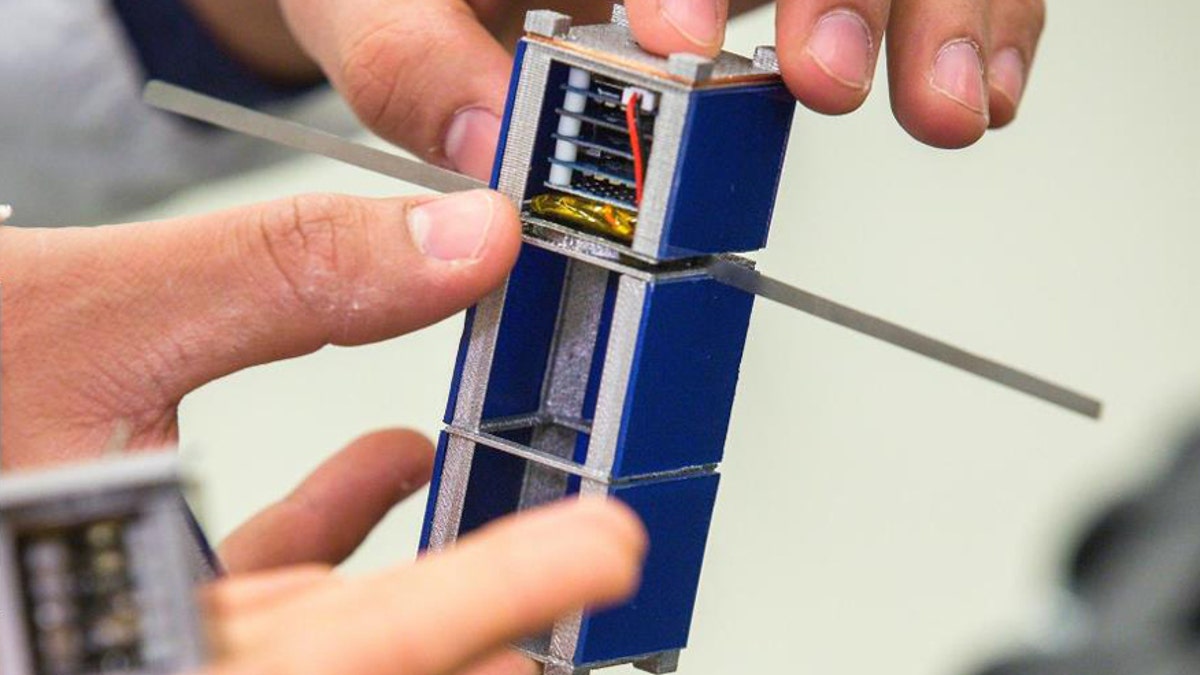
A SunCube FemtoSat (Charlie Leight/ASU Now)
First launched in 2003, CubeSats have made quite an impact on space exploration with universities, enthusiasts, and others deploying the small and affordable satellites. Now, a team of researchers at Arizona State University are developing FemtoSats, an even smaller satellite that is easier and less expensive to launch.
The FemtoSat, also known as SunCubes, were developed by Professor Jekan Thangavelautham from ASU's School of Earth and Space Exploration. The cubes are amazingly small and light, measuring a mere 1.1 inches and weighing only 1.2 ounces. These FemtoSats are significantly smaller than their CubeSat counterparts, which are 4.3 inches long and 2.9 lbs in weight.
Related: NASA and Japan just released over 2.95 million thermal satellite photos of Earth, for free
The FemtoSats are not only small and easy to deploy, they are also affordable when compared to the CubeSat, which costs up to $50,000 to prepare for launch and $100,000 to launch into orbit. According to the Arizona State team, each FemtoSat will cost $3,000 to deliver into a lower Earth orbit, and, if desired, $1,000 to send to the International Space Station.
The FemtoSat will be deployed using a CubeSat equipped with a spring that will shoot the FemtoSat out into space. Approximately 27 FemtoSats can be released by a single deployer. This will cut down on launch costs, allowing the FemtoSats to piggyback on existing CubeSat missions.
The Arizona researchers hope their FemtoSats will make it possible for the hobbyists, students, and other enthusiasts to explore space. "By reducing the launch cost, it is hoped a wider community of educators, researchers, and hobbyists can develop their own spacecraft," said the team. "The standard is targeted towards personal, scientific, private, and government payloads."
What would you do with your own personal satellite?








































